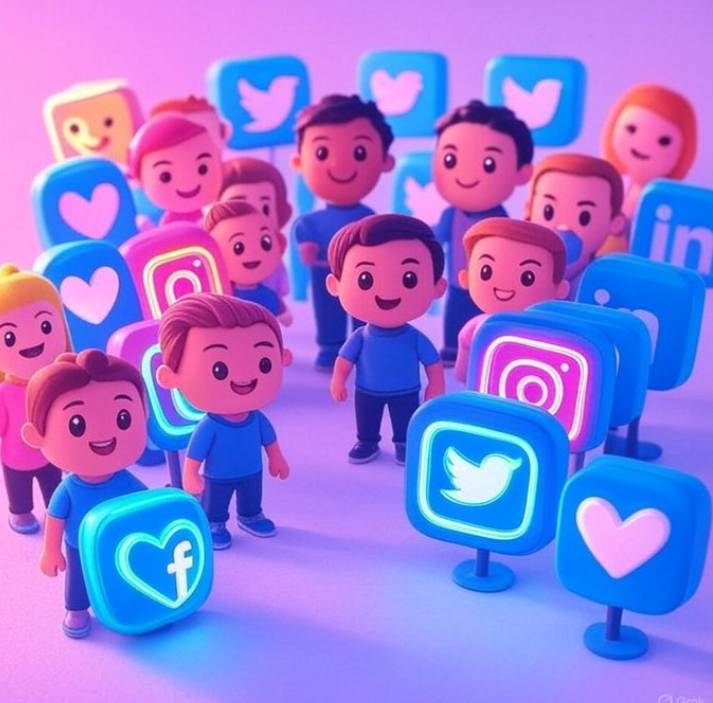
"Raid the Aisles, Save the People!" – Leo Dasilva Sparks Outrage Over Fake Products Flooding Nigerian Supermarkets

Nigerians are fuming, and for good reason. The alarming influx of fake consumer products — from drugs to deodorants — is no longer just an underground concern but one that has found its way to the shelves of some of the most reputable supermarkets in the capital. Reality TV star and entrepreneur, Leo Dasilva, has ignited a nationwide debate following a social media post that is now making waves across the country. The former Big Brother Naija housemate took to his X (formerly Twitter) page to voice his deep concern over the rampant circulation of counterfeit goods, calling for the National Agency for Food and Drug Administration and Control (NAFDAC) to immediately swing into action.
According to Leo, the situation is beyond outrageous — it’s a ticking time bomb. “The amount of fake drugs, fake deodorants, fake toothpaste and fake skincare in Nigeria is ridiculous,” he wrote. “In one month, I have bought fake cod liver oil, fake Gestid, fake Sensodyne, fake Simple face wash, fake deodorant, etc. NAFDAC needs to raid all big supermarkets in Abuja.”
The tweet, which quickly garnered thousands of reactions, has opened up a Pandora’s box of testimonies from fellow Nigerians who have had eerily similar experiences. From counterfeit medications that don’t work, to skincare products that burn instead of cleanse, and even rum that is falsely registered under the name of Lucosade Boost — the nation is beginning to realize that the shelves they trust may not be as safe as they appear.
Leo didn’t stop at complaints. He provided a basic but critical method for consumers to protect themselves: “All foreign products have a barcode. If you want to verify if they are fake or not, scan the barcode with Google Lens.” This simple advice has since been echoed by hundreds of netizens, some of whom have posted videos of their own discoveries — including face creams with barcodes linking to completely different products and beverages with details that don’t align with their packaging.
But the true weight of Leo’s alarm lies in its implications for public health. Medications like cod liver oil and antacids like Gestid are not luxury items — they are essential to health and wellness. The ingestion of counterfeit pharmaceuticals can result in complications, ineffective treatment, allergic reactions, and even death. The presence of these products on the shelves of major supermarkets — places where the middle and upper class shop with confidence — signals a dangerous breach in consumer safety and regulatory oversight.
In a time when Nigeria is battling several public health challenges, including cholera outbreaks, rising costs of medicine, and low access to healthcare in rural areas, the infiltration of fake medical products could spark a national health crisis. The call for action, therefore, goes beyond consumer protection. It touches the heart of national safety, trust in institutions, and the efficacy of agencies like NAFDAC.
The agency, tasked with the regulation and control of the manufacture, importation, exportation, distribution, advertisement, sale and use of food, drugs, cosmetics, medical devices, and chemicals, is now under intense public scrutiny. Many are asking — how did we get here? How did so many counterfeit items pass through the cracks? And what is being done to stop them?
“Someone used Google Lens to scan the barcode of rum and it was registered with NAFDAC as Lucosade Boost,” Leo revealed in another shocking detail. “By the way, there is now fake Aboniki.” For Nigerians, who grew up using the popular Aboniki balm as a cure-all for pain and colds, this revelation has struck a nostalgic nerve — if even this trusted staple has been infiltrated by fakes, what’s truly safe anymore?
What’s perhaps more chilling is the role that supposedly credible supermarkets may be playing in this web of deceit. These are not small kiosks or back-alley chemists, but large retailers — many of whom cater to the elite and are perceived as offering only the highest quality. If such places cannot be trusted, then where can the average Nigerian go for authentic products?
Reactions to Leo’s exposé have been swift and furious. Social media is flooded with messages urging NAFDAC to investigate and sanction offending outlets. Health experts are calling for widespread public education campaigns. Legal analysts are demanding criminal prosecution for importers and distributors of these dangerous products. Meanwhile, tech-savvy Nigerians are sharing barcode-scanning apps and tips, urging others to be vigilant.
Still, there is a sense that more is needed — beyond tweets and temporary outrage. For a country that imports a large percentage of its consumer goods, especially in the health and beauty sectors, the standards for customs inspection, certification, and market regulation must be overhauled. It is no longer enough to conduct once-in-a-while market raids or slap offenders with light penalties. A systemic cleanup, led by strong political will and armed with modern technology, is the only way to root out the network of counterfeiters endangering lives.
The cost of inaction is clear. A compromised healthcare system, rising cases of treatment failure, avoidable deaths, and a population that slowly begins to lose faith in the very institutions meant to protect them. Leo Dasilva may have sparked the conversation, but the responsibility to fix the rot now lies in the hands of regulators, lawmakers, and consumers alike.
As the online storm continues to build, all eyes are on NAFDAC. Will they heed the call and raid the aisles of Abuja’s biggest supermarkets? Will offenders be exposed and punished? Will consumers be protected from the silent poison wrapped in plastic and labels?
The answers remain to be seen. But one thing is clear — the fight against fake products is no longer just a health issue; it is a battle for the soul of a nation’s market integrity. And if Leo’s warning serves as a catalyst for lasting change, then perhaps this firestorm of concern will have been worth it.


